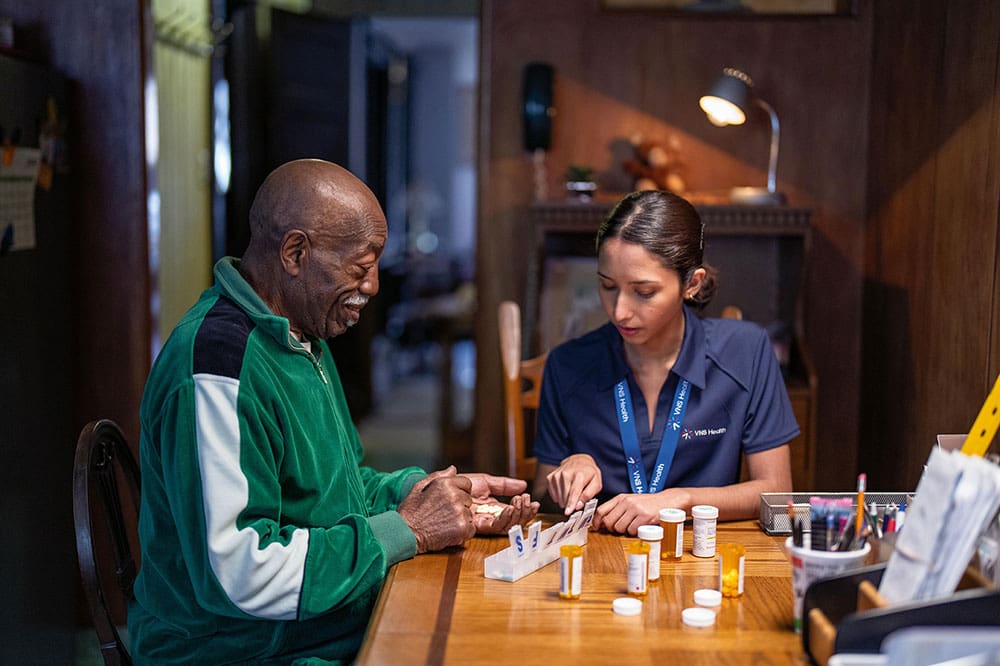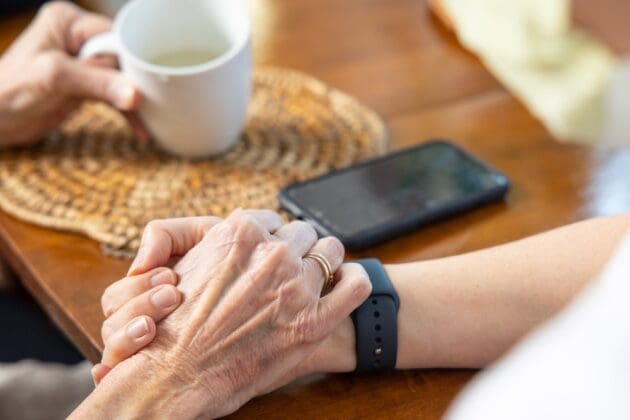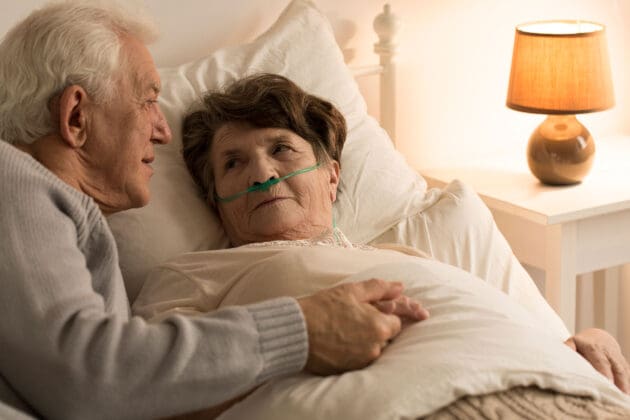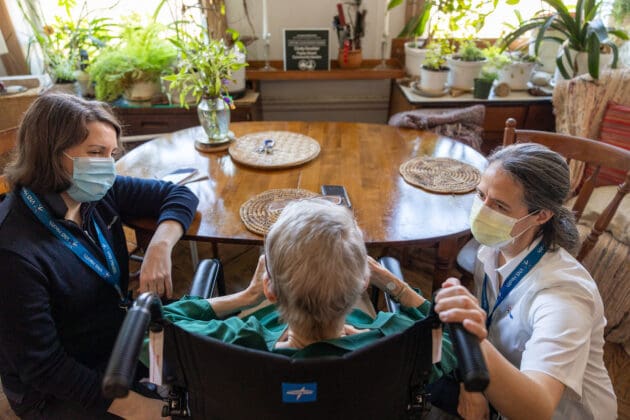
People in hospice care may start to have uncomfortable symptoms, such as nausea or vomiting, pain, trouble breathing, or difficulty sleeping. These symptoms, which are in addition to any other symptoms they have from their disease, can start suddenly and worsen quickly, so it’s important to have medication on hand that can give relief right away.
VNS Health Hospice Care will give you a hospice comfort pack, also called a hospice emergency kit or e-kit, so that you’ll be ready. The pack contains a small supply of medicines that you can use immediately for common end-of-life symptoms without having to wait for a prescription. Your VNS Health hospice care nurse will go over the medicines so you know how to use them.
Do not use the medicines until the VNS Health hospice care nurse or doctor tells you to.
The hospice comfort pack:
- Is delivered to the patient’s home
- Should be stored in the refrigerator to keep the medicines active
- Should be kept away from children and people who aren’t caregivers
- Should be opened or unsealed only when needed
- Contains medicines that should be used only with instructions from a hospice care nurse or doctor
- Is for your loved one only — don’t let others use the medicines
Caring for a loved one in hospice isn’t something you need to do alone — VNS Health is here to help. Our home hospice care supports you and your loved one in the comfort of home.
Medicines in the Pack
The hospice comfort pack contains medicines that can help relieve common end-of-life symptoms. Follow the instructions of your VNS Health Hospice Care team when giving the medicines. Don’t increase the dose or give the medicines more often unless your hospice nurse or doctor tells you to.
- Acetaminophen suppository
Placed in the rectum to relieve mild pain or fever - Haloperidol (Haldol) liquid
Swallowed to relieve restlessness or confusion - Atropine liquid
Given under the tongue to dry secretions in the mouth and throat - Lorazepam (Ativan) liquid
Swallowed to relieve anxiety, restlessness, or trouble sleeping - Morphine (Roxanol) liquid
Swallowed to relieve pain or shortness of breath - Prochlorperazine (Compazine) suppository
Placed in the rectum to relieve nausea or vomiting - Bisacodyl (Dulcolax) suppository
Placed in the rectum to relieve constipation
Some of these medicines have side effects such as drowsiness, dry mouth, or slowed breathing. Your hospice care nurse will explain what side effects to expect and how to manage them.
When to Use the Comfort Pack Medicines
Use the comfort pack medicines when your loved one needs them to relieve new symptoms or when existing symptoms get worse.
If your loved one can no longer speak, they can’t tell you if they’re in pain or have other symptoms. Look for the following signs that their symptoms are getting worse or that they have a new symptom:
- Tension in the body or face, such as clenched hands or jaw
- Agitation, restlessness, striking out
- Moaning or crying out
- Frowning or grimacing
- Difficulty breathing
Additional Medicines
Some hospice patients may need additional comfort pack medicines. A person at risk for seizures may need an antiseizure medicine. Patients with severe pain may need additional opioids such as oxycodone for relief. These medicines can cause constipation, so patients on these medicines may need additional laxatives or enemas. People with heart disease may need medicines such as nitroglycerine or furosemide (Lasix). Your hospice care nurse will work with you and your loved one to be sure that the pack contains the right medicines and that you know when and how to use them.
Your loved one may also still need some or all of the prescription medicines they usually take, such as those for treating high blood pressure, diabetes, or their disease. Your hospice care nurse or doctor will help you and your loved one decide when these drugs are no longer needed.


